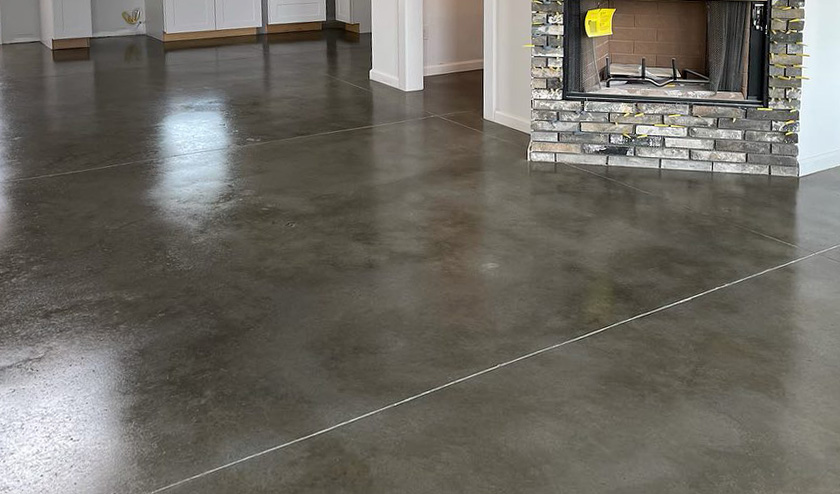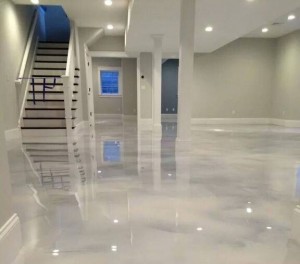Why Local Discolored Flooring Is the Perfect Option for Sustainable Home Renovation
In the world of sustainable home enhancement, regional tarnished floor covering has arised as a preferred choice among ecologically aware house owners. As a cost-effective investment with minimized upkeep demands, it raises a thought-provoking concern: could this be the ideal solution for lasting real estate?
Understanding the Idea of Regional Tarnished Flooring
While the notion could seem novel to some, neighborhood stained floor covering is an innovative strategy to home renovation that combines appearances, toughness, and sustainability. The discoloration process not just boosts the all-natural beauty of the timber grain yet additionally includes a layer of defense, enhancing the longevity of the flooring. Making use of local timber types typically sustains local economic climates and promotes responsible woodland administration methods.
The Visual Appeal of Regional Tainted Flooring
Why is local discolored floor covering acquiring popularity for its looks? The solution lies in the distinct beauty and character it offers any type of space. Regional tarnished flooring uses a varied variety of patterns and colors, mirroring the natural appeal and variants of the local wood species utilized. This develops a distinct, tailored aesthetic that can not be reproduced by mass-produced options. In addition, the staining procedure enhances the wood's inherent grain and appearance, adding depth and splendor to the flooring's look. This rustic style effortlessly blends with different indoor design styles, from traditional to modern-day, making it a functional choice for homeowners. Eventually, the appeal of regional discolored floor covering depends on its capacity to change homes right into distinctive, aesthetically appealing areas while promoting sustainability.
Ecological Effects of Local Tainted Flooring
The environmental effects of regional stained floor covering include two significant elements: reducing carbon impact and waste minimization advantages. Making use of locally sourced products for staining not only lessens transportation exhausts, yet additionally promotes lasting forestry techniques. The waste minimization element comes right into play as these floor covering types usually have a longer lifespan, minimizing the frequent requirement for substitutes and the waste linked with it.
Reducing Carbon Footprint
As home owners turn to more sustainable choices, local discolored floor covering arises as a feasible service to minimize carbon footprint. The process of tarnishing the floor covering, rather than using synthetic layers, entails fewer chemicals and less energy-intensive procedures. Choosing for regional stained flooring demonstrates an efficient procedure in promoting ecological sustainability, highlighting a tangible way house owners can add to combating environment change from the convenience of their very own homes. Best Stained Concrete Austin.
Waste Minimization Benefits
Although usually ignored, waste minimization is an additional considerable advantage of regional stained floor covering. Additionally, the discoloration process uses fewer sources and generates less waste contrasted to manufacturing brand-new floor covering materials. The option of local tarnished flooring not just improves homes but likewise underpins a commitment to sustainable living and waste decrease.
The Durability and Upkeep of Local Tarnished Flooring

The Cost-Effectiveness of Neighborhood Discolored Flooring
While regional tarnished flooring may at first appear a lot more costly than various other options such as carpeting or laminate, its long life and toughness promptly transform it right into an economical selection. The ahead of time cost is commonly countered by the decrease in upkeep expenditures over time. Unlike rugs that require routine deep cleaning or laminate that may require substitute after a couple of years, tarnished floorings are constructed to last, lowering the requirement for expensive repair services or substitute. Regional sourcing of materials reduces transport expenses, adding to both economic savings and a reduced carbon impact. For property owners seeking a lasting, cost-effective service for their floor covering needs, local tarnished floor covering emerges as a premium, long-lasting investment that settles over time.

Reality Examples of Sustainable Houses With Neighborhood Tarnished Floor Covering
In the world of sustainable home enhancement, neighborhood tarnished flooring has become a prominent alternative. To further illustrate its advantages, a number of reality instances of environment-friendly homes that have actually efficiently incorporated this floor covering technique will be highlighted. These study provide tangible proof of the advantages and impact of using neighborhood discolored floor covering in sustainable homes.

Showcase: Eco-Friendly Flooring Homes
Scanning the world, one can find many homes that symbolize the concept of environmentally friendly living through using neighborhood stained flooring. In the heart of Denmark, a minimalist home prides itself on its oak-stained floors, sourced and treated within the regional region. Across oceans in copyright, a contemporary home showcases its abundant, maple-stained floor covering, a testimony to the plentiful neighborhood timber supply. Down under in Australia, a coastline residence beams with its eucalyptus-stained floorings, mirroring the nation's native flora. These homes not only showcase the visual versatility of neighborhood tarnished floor covering however likewise its contribution to a more lasting way of living. Each my latest blog post flooring narrates of respect for the environment, proving that style and sustainability can certainly coexist.
Local Discolored Floor Covering Benefits
The obvious allure of local discolored floor covering extends beyond its aesthetic allure, as it also provides considerable advantages to both homeowners and the atmosphere. This kind of floor covering is sourced and generated locally, minimizing transportation discharges and bolstering the local economic situation. The discoloration procedure makes use of all-natural, safe products, advertising indoor air high quality and decreasing the home's environmental footprint. In a sustainable home in Portland, Oregon, as an example, regional discolored concrete floors not only enhance the appearances yet additionally work as thermal mass, absorbing heat throughout the day and launching it at evening, reducing power use. One more instance is a green-certified home in Austin, Texas, where in your area sourced walnut was stained and used for flooring, adding to the home's LEED qualification.
Conclusion
In conclusion, local stained flooring is a lasting and sensible alternative for home improvement. With its distinct mix of ecological, visual and cost-effective benefits, regional stained floor covering is a clear selection for home owners looking for a sustainable, visually appealing and cost-efficient home renovation option.
In the realm of lasting home improvement, local stained floor covering has arised as a popular choice amongst ecologically conscious home owners. Local stained flooring provides a diverse variety of patterns and colors, showing the natural charm and variations of the regional wood species made use of. The choice of neighborhood tarnished floor covering not just enhances homes however also underpins a commitment to lasting living and waste decrease.
For home owners looking for a sustainable, economical solution for their floor covering requires, regional discolored flooring arises as a premium, lasting financial investment that pays off over time. Local Stained Concrete.
With its distinct blend of ecological, visual and affordable advantages, local tarnished floor find out covering is a clear choice for home owners seeking a lasting, economical and visually appealing home renovation service.